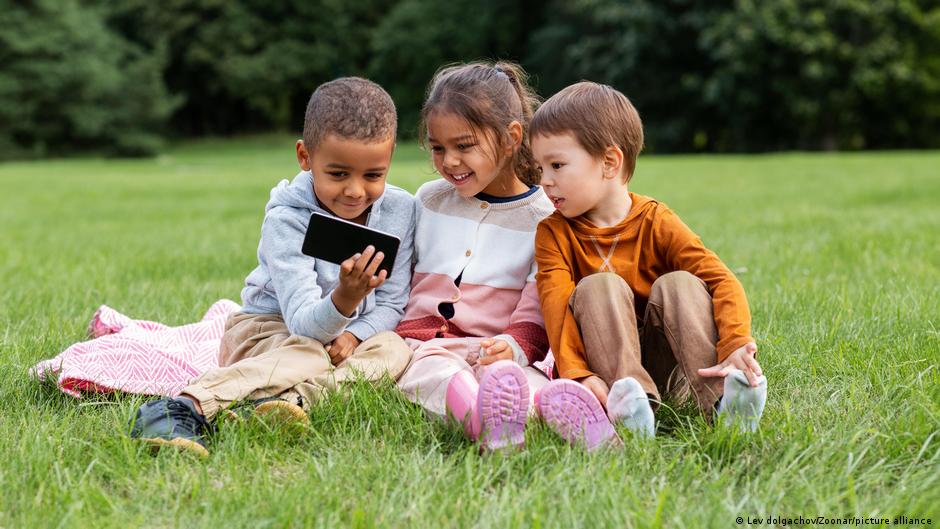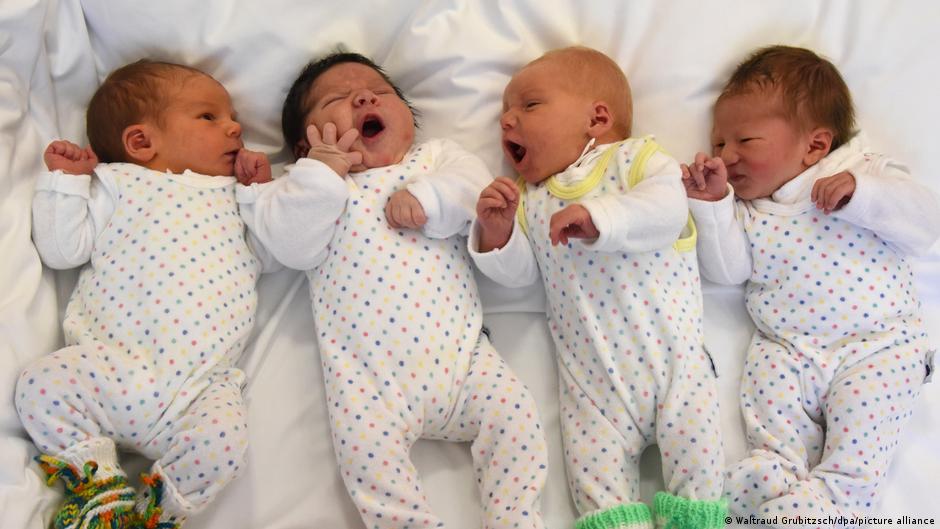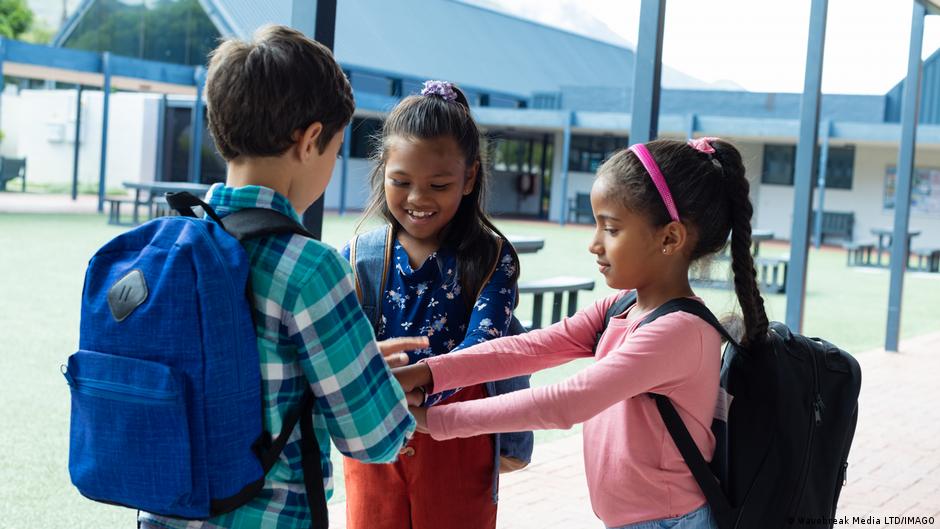Children start making sense of racial differences before they turn one. Experts say: Parents, don’t ignore race. Talk to your kids. Here’s how to do it.

By the age of two-and-a-half, children preferred a playmate of their own race in a 1997 study
It starts in a child’s first months of life, and it’s well-documented: A landmark study in 2005, for instance, showed that babies perceived differences in race and exhibited preferences for their own race as early as at three months of age.
In a 2017 study, children associated adults of their own race with happy music, and adults of a different one with sad music — when the kids were aged just six to nine months old.
While children showed a “weak racial bias” at seven years old, by the age of 10, their bias had become “strong and reliable” in a 2014 study. White children in that study thought that black children of the same age would feel less pain than them if they bumped their heads or bit their own tongues.
These and other studies show that racial biases can be hard to unravel once they have set in. But experts say that talking to your kids about race, rather than ignoring the topic, can lead to healthier and more positive attitudes.

Research shows babies start recognizing race as early as at three months old
Why should I talk to my kids about race?
For Aisha White, director of the Positive Racial Identity Development in Early Education (PRIDE) program at the University of Pennsylvania in the US, it’s a question of “Why wouldn’t you talk to your kids about race?”
“If you live in this world, you know that race is an issue,” said White. “Even in places like North Africa […] there’s discrimination against sub-Saharan African people because of their skin — not because of their skin color, [but] because of the way people perceive skin color.”
Parents can start addressing race before their kids can even speak, through images — in picture books, for example — said White, citing research from psychologists Phyllis Katz and Jennifer Kofkin.
In a 1997 study, Katz and Kofkin found that the majority of children aged two-and-a-half years old preferred a playmate of their same race when they were presented with images of different races.
At age 3, the researchers noted a major shift in children’s preferences: The majority preferred a white playmate over people of color.
“They have begun to understand that white is preferred in the country. That’s the population that gets the attention, the adoration, that’s held up as more important. So, they start to absorb those messages,” explained White.
Parents of color should try to have conversations with their kids, said White. Parents should help their kids understand that white people are not better than them. White parents also need to talk to their kids, she said.
“It’s unfair for them to think that [they are better]. It’s not true. They are not better, they are not superior,” White said, adding that to be fair to both white children and children of color, they needed to learn that the racial differences between them and others do not mean they are better or worse.

Kids soak up attitudes and behavior from their surroundings and that can inform their views about race
How can I talk to my young child of color about race without scaring them?
White said research had revealed parents of color often focus on four things when they talk about race with their kids:
Cultural awareness Egalitarianism Preparation for bias Promotion of mistrust
Cultural awareness involves the celebration of one’s own race and background.
Egalitarianism involves telling kids they are smart and beautiful, and that they aren’t better than anyone and no one else is better than them. These messages are appropriate and necessary for kids of all ages, White said.
Preparation for bias involves telling kids that although they are beautiful and smart, not everyone in the world will see them that way. This may be a necessary conversation at some point, said White, but it does not need to be taught to very young children.
Promotion of mistrust involves messages that parents give their children about people who are different from their children, White said.
“For example, black children are told: ‘You may have a white friend but you might not always be able to trust them when it comes down to a serious experience, because they’ll be treated differently and they may not defend you,”’ White said. “That’s something that some parents do, and it’s not a message that I think is appropriate for young children.”

If kids don’t get to meet a diversity of people, including kids of color, studies suggest they may grow up with stronger racial biases
But I don’t think my white child sees race — they are so young!
Some parents don’t talk about race with their kids because they think their child is colorblind, or because they want to encourage an attitude of colorblindness.
But White says — and the research we’ve mentioned above shows — that this simply isn’t true: She says children do see race at a very young age, and that if we don’t discuss race with them, they can develop “attitudes about race that are totally different from [their] parents’ attitudes.”
Based on her research, White said kids’ attitudes toward race can be solidified by the time they are 10 years old. At that point, it can be harder to shift their views. So it’s important, said White, for parents to work to address these differences early on.
That doesn’t mean parents need to talk to their very young kids about racism, she said. The point is to address the fact that while differences in race exist, they do not signify “good” or “bad”.
Edited by: Zulfikar Abbany
Sources
Older but not younger infants associate own-race faces with happy music and other-race faces with sad music. By Naiqi G. Xiao, Paul C. Quinn, Shaoying Liu, Liezhong Ge, Olivier Pascalis, Kang Lee. Published in Developmental Science, 2017: https://onlinelibrary.wiley.com/doi/abs/10.1111/desc.12537
Children’s racial bias in perceptions of others’ pain. By Rebecca A. Dore, Kelly M. Hoffman, Angeline S. Lillard, Sophie Trawalter. Published in Developmental Psychology, 2014: https://bpspsychub.onlinelibrary.wiley.com/doi/10.1111/bjdp.12038
Three-month-olds, but not newborns, prefer own-race faces. By David J. Kelly, Paul C. Quinn, Alan M. Slater, Kang Lee, Alan Gibson, Michael Smith, Liezhong Ge, Olivier Pascalis. Published in Developmental Science, 2005: https://www.ncbi.nlm.nih.gov/pmc/articles/PMC2566511/
Author: Clare Roth
News Related-
Google Pixel 8 Pro Review: Is this the best Android phone of 2023?
-
Namwater Dam Bulletin on Monday 27 November 2023
-
Dr Yunus appointed chair of Moscow Financial University's international advisory board
-
Victory over Nigeria puts Uganda on the brink
-
BoG holds policy rate at 30%, tightens liquidity measures
-
When sea levels rise, so does your rent
-
American International School CEO honoured as ‘Icon of Inspiration and Impact’
-
Sierra Leone prison breaks co-ordinated - minister
-
Address the rise of single parenthood
-
Hyundai Chief Picked as Auto Industry Leader of the Year
-
Unmarried People Under 35 Outnumber Married Ones
-
European interior ministers in Hungary to discuss migration
-
Japan on the watch for unlicensed taxis around Narita airport amid foreign tourism spike
-
ECOWAS to send high-powered delegation on solidarity visit to Sierra Leone
